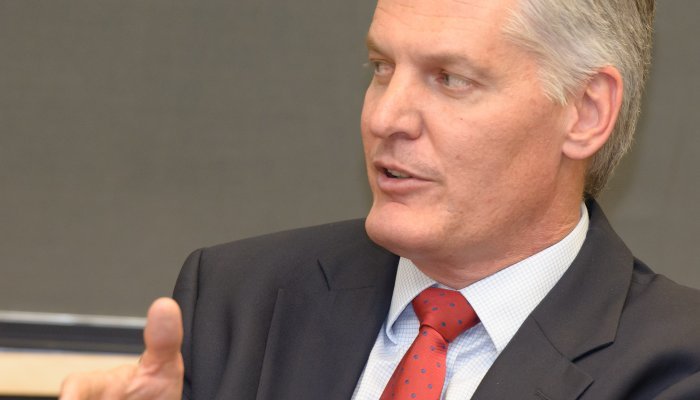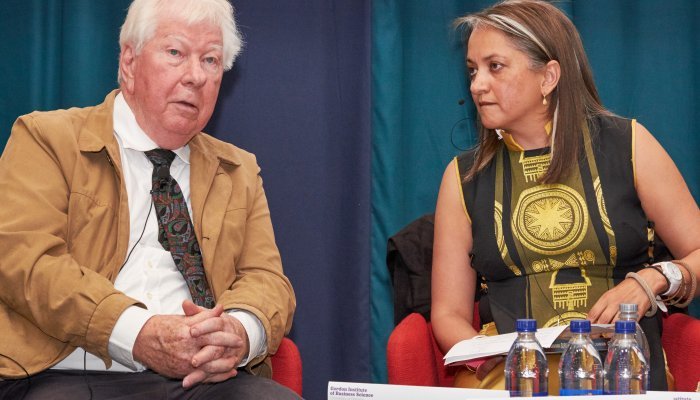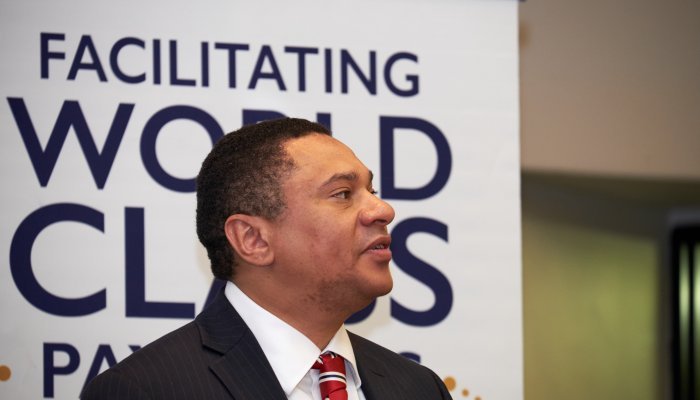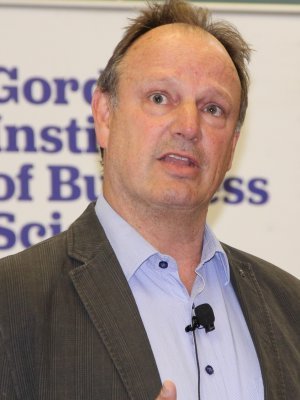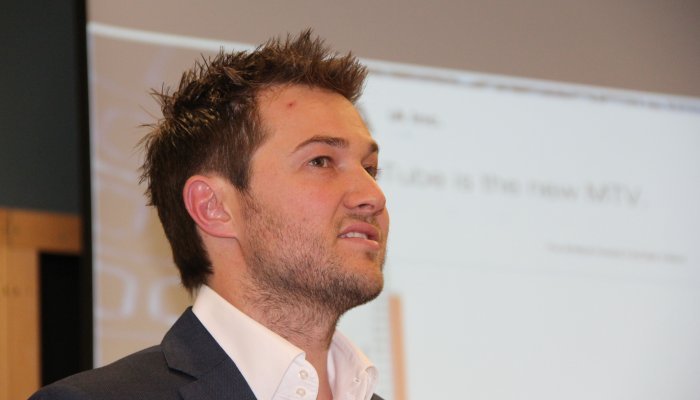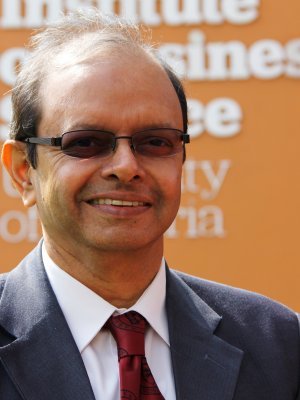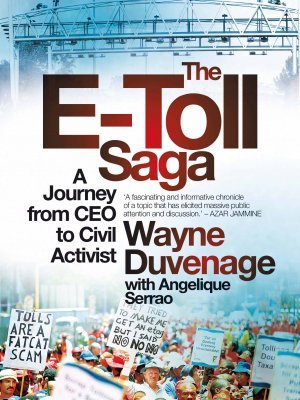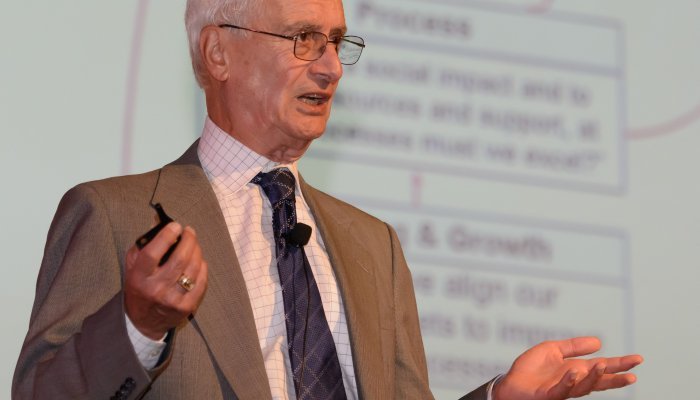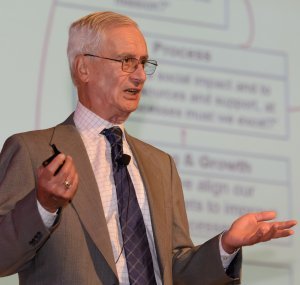
“No SA companies in Balanced Scorecard Hall of Fame!”
Harvard Business School’s Professor Robert Kaplan has thrown down a challenge to South African business. Speaking at a joint GIBS/BRG Conference at Midrand’s Theatre on the Track, Kaplan confirmed that, as yet, not a single South African company had been elected to the Balanced Scorecard Hall of Fame. Kaplan founded and developed the Balanced Scorecard strategic planning and management system along with colleague Dr. David Norton. He told more than 500 delegates that the Balanced Scorecard Hall of Fame had been established - “somewhat immodestly” - in 2000, and it had just two criteria for entrance. One was that the company concerned “had to be using the Balanced Scorecard”, and the second: “Is it working for you? Is it delivering performance?” The Hall of Fame now has some 200 members, but “sadly, even though David and I have been coming to South Africa for quite some number of years, we don’t yet have a South African member.” Kaplan revealed that Africa has just one company in this august institution and it comes from Kenya.
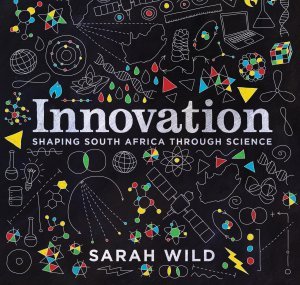
GIBS Book Launch 1: Innovation - Sarah Wild
Both GIBS and its parent, the University of Pretoria, have a deep commitment to innovation, so no surprise, then, for the Business School itself to commission and publish a study on the subject, called simply Innovation. But who better to write it than multi-award winning science journalist and, until recently, science editor at the Mail and Guardian, Sarah Wild. The book takes the form of a series of essays ranging from the Environment to Energy and Health, and Wild’s research makes it clear that South Africa has a deep well of innovation. Her book goes a long way to ensuring that we drink from that well.
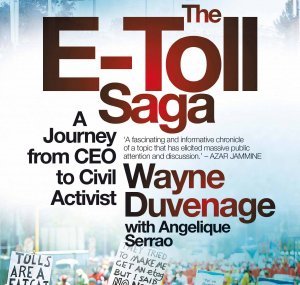
GIBS Book Launch 2: The E-Toll Saga - Wayne Duvenage with Angelique Serrao
Wayne Duvenage used to be CEO of car rental company Avis. These days he describes himself as a Civil Activist. He was at the centre of the fight in Gauteng against E-Tolls, co-founding and leading OUTA - the Opposition to Urban Tolling Alliance - and during the launch of his book at GIBS, he confirmed that government had threatened Avis’ parent with the loss of business if he was allowed to continue. His book describes not so much a Damascene conversion but rather a long and gritty transformation from corporate high-flyer to denim-wearing protest marcher. Duvenage is not done yet - he is very firmly opposed to government’s current nuclear plans.
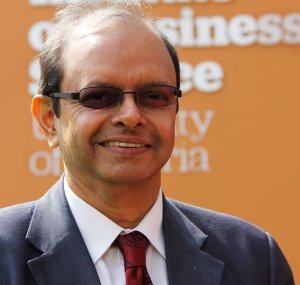
A Digital Blueprint
Dr Ganesh Natarajan, Vice Chairman & CEO of ZenSar Technologies, who also presents case studies at Harvard Business School.
Speaking at the GIBS Digital Transformation Blueprint for Business conference, “You must have a cloud strategy and you must have a mobile strategy,” he told delegates. Natarajan also encouraged the audience to understand the rate of change that their companies could handle, along with the rate of external change likely to affect them, implying that a critical issue was the gap between the two.
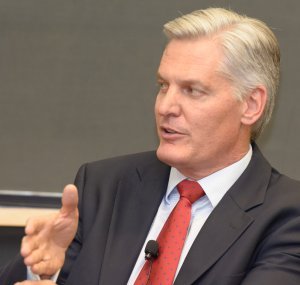
A Million Jobs from Manufacturing
“If we were able to turn manufacturing around to its former glory as a 25% contributor to GDP, we could create about a million jobs…so there’s an enormous opportunity to encourage manufacturing in South Africa and address some of our very serious socio-economic and socio-political challenges,” said Nampak CEO André de Ruyter at a recent GIBS Forum on Cost Complexity in Manufacturing, adding that it was “an exciting opportunity that deserves the attention of government and industry.
But de Ruyter was quick to qualify the prospect: “ Before we can do that, we need to get a couple of things right. First of all we need to be competitive and in order to be competitive internationally we need to identify what our competitive advantages are and what our comparative advantages are.” One of his conclusions, he said, was that “as a country we have been so sheltered behind import replacement - and this is a legacy of the past, driven to a large extent by sanctions - that we became self-sufficient and we made everything ourselves. But now the tariff barriers have dropped, we are exposed as sub-scale in some instances, out-of-date and behind the investment curve. We need to catch up.”
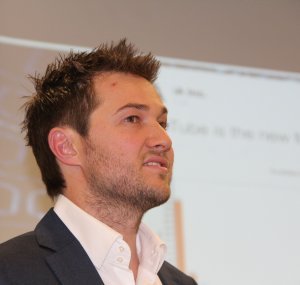
Over To You, YouTube
“The biggest marketing shift in decades,” was how Mofilm Africa CEO Jon Ratcliffe describes the spectacular growth of online video. The former Google executive has returned to his native South Africa to exploit the opportunity, which is being driven, he explained, by the rapid increase in internet download speeds allied to an equally rapid reduction in data costs.
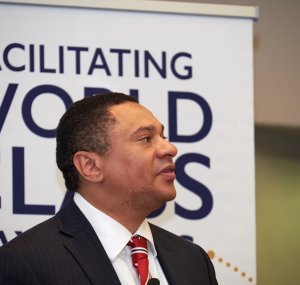
Regulators and the Speed of Change
"Regulators, by necessity, have to keep pace with, and respond to, the changing environment. Unfortunately, regulators often play catch-up due to the speed of technological change and innovation as well as their lagging ability to fully understand the technology and the risks it may give rise to." That was according to SA Reserve Bank Deputy Governor Francois Groepe, speaking at the annual PASA/Strate Conference held at GIBS in September, 2015: Game changers in Financial Markets: Regulation, Innovation and Cybersecurity. "The developments in cyberspace are a cause for concern for regulators, financial market partcipants, business and informed customers, " warned Groepe.
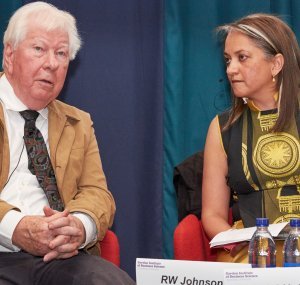
The Looming Crisis…Or Not?
R.W. Johnson meets Ferial Haffajee
A packed house at GIBS in early October heard political commentator and veteran Oxford academic R.W. Johnson defend his latest book How Long Will South Africa Survive - The Looming Crisis in trenchant debate with City Press Editor-in-Chief Ferial Haffajee.
Johnson’s book echoes one of almost the same name which he wrote in 1977, forecasting the demise of apartheid. His belief now is that South Africa is in the ever-tightening grip of an ANC political patronage system which is gradually driving the country deeper and deeper into debt. He contends that the imminent result will be a ratings downgrade for South Africa by the international credit ratings agencies, junk bond status, and an IMF bail-out.
“I would be surprised if we got through the next five years without some form of credit crunch,” said Johnson.
Haffajee disagreed, describing South Africa as a country “lived at fever pitch” and suggesting that a walk through Sandton’s thriving CBD would be a good cure for pessimism. She conceded that “our political leadership is not in the finest fettle”, whilst noting that right now there were “no visionaries in business either, as there were at the end of the 80s.”



